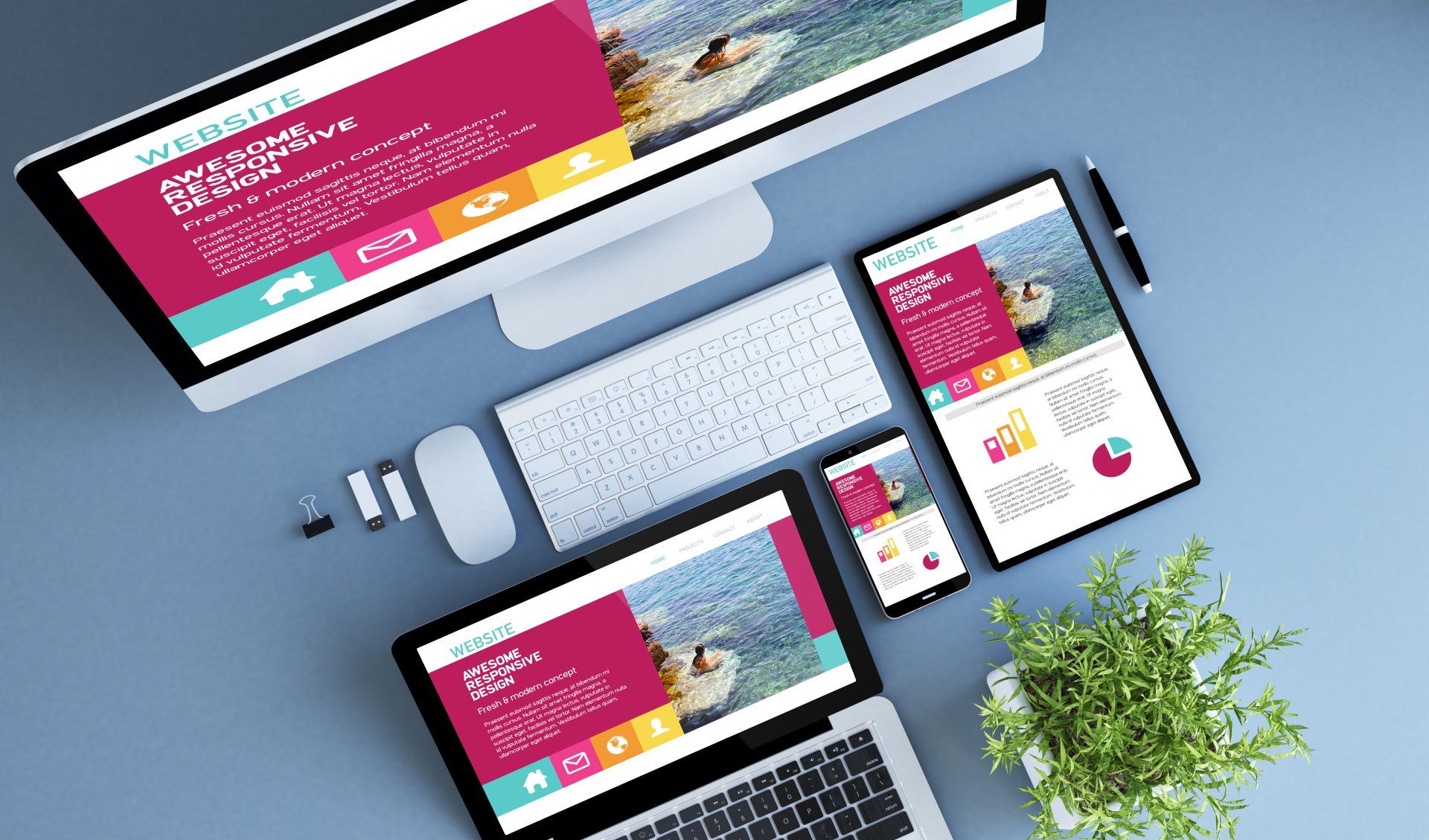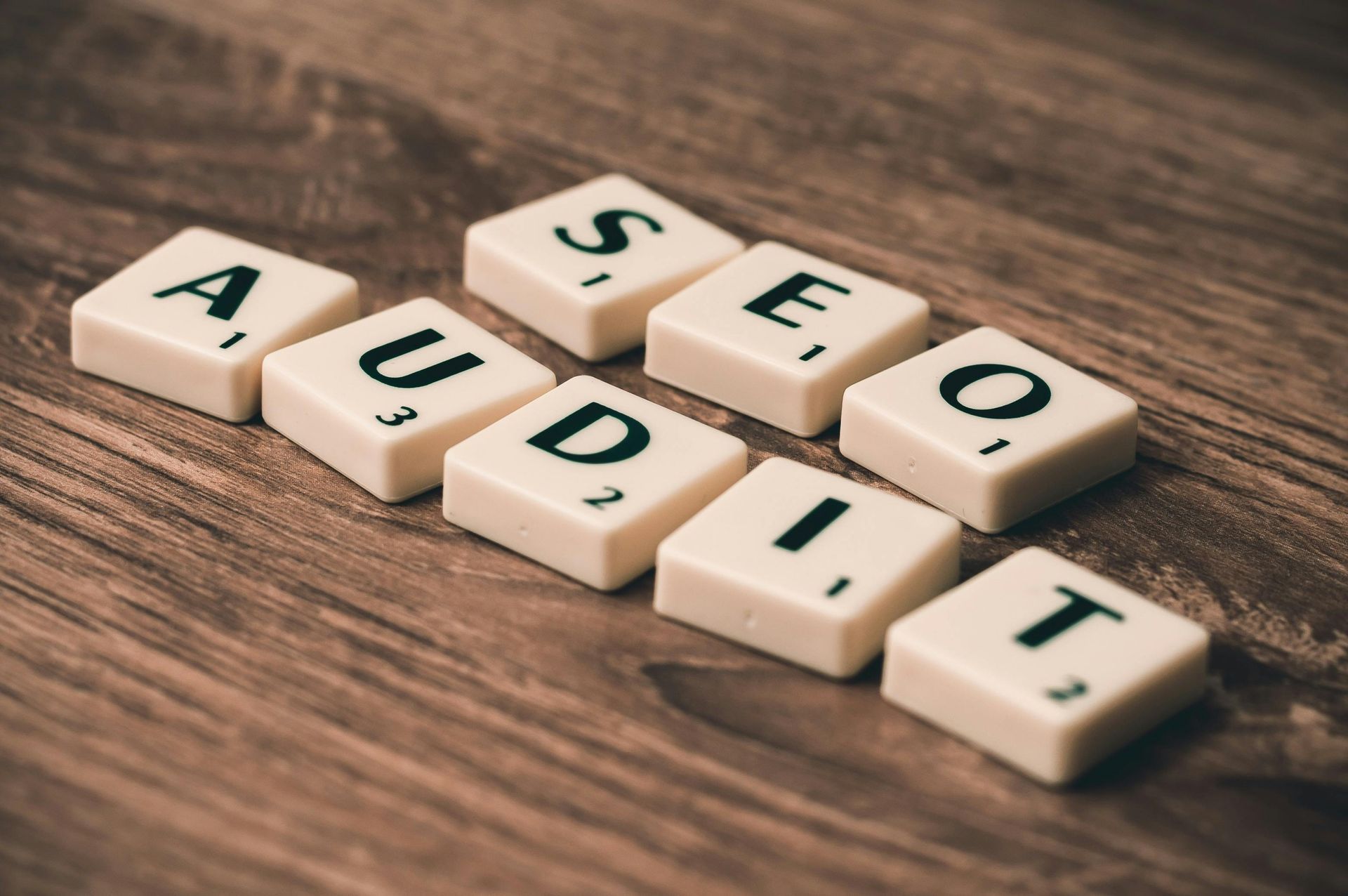Digital marketing essentials for small businesses
Whether you are just starting out in business, looking to grow an established business or trying to stay afloat in a challenging market, digital marketing is essential for small businesses.

Digital marketing is promoting your brand, products and services and connecting with customers using the internet and other forms of digital communication. This includes your own website, social media, email, online advertising and text messages.
But if it’s just you or a small team running the business, how do you find the time? How do you know which elements of digital marketing are the most important to focus on? Do you even need to do digital marketing at all?
You definitely do need digital marketing – whatever you are selling, whoever you are selling to and however small your business.
Digital marketing is about raising brand awareness and getting people interested in your products so that they go on to become customers. For small businesses, getting the word out can be tough – your website is virtually unknown, your social media following is small and you don’t have the time or the budget to change that dramatically. But you can still make a difference to sales through your marketing efforts.
Digital marketing works for both business to business (B2B) and business to consumer (B2C) companies, but companies should use it in different ways, depending on what they are selling and who they are selling to:
- B2B clients tend to have longer decision-making processes, so relationship-building strategies work better for these clients.
- B2B transactions are usually based on logic and evidence.
- B2C customers tend to respond better to short-term offers and messages
- B2C content is more likely to be based on emotion and focused on making the customer feel good about a purchase.
Your website
For most companies, digital marketing starts with their own professional-looking website. This is where you have complete control and can show the world who you are, what you have to sell, how a potential customer can get in touch with you, where you are based and a whole lot more.
Your website should showcase your products and services and also tell prospective customers something unique and memorable about your brand and its values.
You can update your website as often as you want to and it won’t suddenly go out of fashion like social media platforms can do.
Your website will attract traffic in its own right and is also somewhere to send visitors who click on your online advertising and your social media.
Know your audience
When you make a start on your digital marketing, you first need to know who is going to buy what you have to sell. Because it definitely isn’t everyone!
Small businesses generally work in their own specialised area and that’s what you need to focus on. You need to create your own niche which appeals to people who are looking to buy within that niche.
What are they interested in? What are their priorities? What problem are they looking to solve? What pushes them to make a purchasing decision?
When you know the answers to these questions, you can come up with messaging that appeals to that specific audience and shows them that your business has the solution to their problem.
Take your existing customers as a starting point – are there more people like them out there? Or are there other groups of people you think would be interested in what you have to sell? Use that knowledge to create a buyer persona of your ideal customer and make sure your marketing is aimed at them.
What makes you different?
What makes you better or different from the competition? It could be the price, it could be your sustainability credentials, the fact you are a family business or your free shipping.
Whatever it is that makes you different, make sure you highlight it, because it gives you the edge over your competitor and makes prospective customers think that your business should be the right choice.
Ensure the message is clear across all of your digital marketing, including your website, social media and paid ads.
Stay focused
The world of digital marketing is very big and your business is small – as is your budget. So don’t target TikTok if you’re selling to 60-somethings and don’t update your blog twice a week if all of your sales are coming through Instagram.
Target existing customers
Existing customers have already bought from you at least once, so that means they already know, like, and trust your business. If you've provided a good product and good customer service, they are more likely to come back to you in future, rather than go to a competitor.
Don’t bombard them with daily emails, but are there opportunities for repeat
purchases, upselling and cross-selling?
Even if they don’t come back, if your service is good enough, your existing customer might tell their friends about your brand and share their experience on social media.
Blogging
Adding a blog to your website is a great way to generate organic traffic (through searches on Google, Bing etc), particularly for visitors who haven’t yet decided to buy.
Your blog gives customers and prospective customers something extra. It’s not all about selling, it’s about making your business a credible authority in your niche. So if it’s sustainability which makes your business different, write posts on the provenance of your ingredients, how you are trying to reduce carbon emissions in your supply chain or your cycle to work scheme for employees.
Make sure you write for SEO (search engine optimisation). The more often your keywords appear in your high quality, helpful blogposts, the more likely you are to appear in search results. This is especially important if your business operates in a small local area – make sure you include words like ‘Cheltenham’, ‘Gloucestershire’ and ‘Cotswolds’, so it comes up in searches for businesses like yours in the area.
Once you start blogging, you can add a call-to-action on your posts for visitors to subscribe to your blog and receive emails This is a great way to start collecting more information about your potential customers and to target them with exclusive offers.
Don’t have time to write a blog yourself? Get an enthusiastic team member to take it on or use a freelancer.
Use social media
Social media is essential for digital marketing. It is a place to promote your brand, products and services, both organically and through paid advertising. It is somewhere you can answer customers’ queries and you can even sell direct from social media – something which is particularly popular with the youngest consumers.
But you can’t do it all. Start with two or three platforms and get those right before expanding if you need to. Your target audience will have a preferred platform, so that is the place to start.
Facebook is still by far the biggest social media platform and is the place to be for slightly older consumers, although 61.3% of global Facebook users are under 35. In the UK, Facebook has a reach of 38 million people, which is 66% of the total UK population over 13 years old, according to Digital 2021: Global Overview report.
If your brand lends itself well to video, YouTube could be the one to target. It is the world’s second most popular social media platform after Facebook. With over 2 billion users and an estimated 1 billion hours of video consumed daily, the potential reach is enormous.
Instagram has 32 million users in the UK, with a gender split of 54% female to 46% male. Usually seen as a place to share photos, the use of video is on the rise, with video accounting for 17.8% of all Instagram posts.
Instagram is a particularly good way to target millennials. The largest share of Instagram users are aged between 25 and 34 years old, at 30.9 percent. This is followed by users in the 18 to 24 years old category, according to Statista. If you are targeting the very youngest consumers, Gen Z (16-24 year olds), you can’t ignore TikTok. TikTok is all about videos of between 15 and 60 seconds. It is a fun tool, which shows a less polished side to your brand, but can still drive traffic to your website.
TikTok was the most downloaded app of 2020, with 2.6 billion downloads worldwide.
It had 8.5 million users in the UK in 2020 and this is expected to rise to 10.9 million in
2021.
Online advertising
Online advertising might sound expensive, but it is actually within the budget of most small businesses. The best place to start is with Google Ads, but Facebook Ads can also prove valuable. And, depending on your target audience, you may want to also consider advertising with other social media like Instagram or TikTok.
Even for a small business, Google Ads’ pay-per-click (PPC) advertising service can make a real difference to how your company ranks in searches. It is suitable for businesses with any budget, as you can limit your spending to ensure you don’t go over budget and adjust it as often as you need to.
PPC advertising means you only pay when someone clicks your ad. With more traditional advertising, your adverts are reaching people who probably don’t want to see them, but Google Ads are only shown to people who are actively searching for what you have to offer. Anyone searching for the terms you choose eg ‘swimming classes Gloucestershire’ is more likely to come to your site and make a purchase after seeing your ads.
Google Ads is a level playing field which allows you to compete with bigger
companies. If you have bid the most to rank for ‘swimming classes Gloucestershire’, you will appear at the top of the ranking, regardless of the size of your company.
With Google Ads, your ads will be displayed instantly. Depending on how specific your keywords are (keyword phrases of three to five words are best for small businesses), you could immediately be displayed at the top of the search ranking for the keywords you have bid on.
Facebook Ads will help you find people who are interested in what your business has to offer, but are unlikely to buy straightaway. While Facebook doesn’t show people ads for things they are actively searching for, it does understand its users very well, because it collects a lot of data. Taking into account things like the pages a person engages with, their date of birth, their location and their friends, it will show users ads for things they will almost certainly be interested in.
Facebooks Ads provides a wide range of targeting options based on demographics and behaviour. It is very affordable, particularly when targeting a local area, so it is cost-effective for small businesses like coffee shops, hair salons and convenience stores.
Digital marketing might sound daunting for a small business, but there are lots of steps you can take to build your online presence. While things like blogging will take a while to make an impact, social media posts and online advertising can have an immediate effect.
Think about which areas of digital marketing will work best for your business and the audience you want to reach, then start by investing time in them, before moving on to the other areas.
More Posts.










